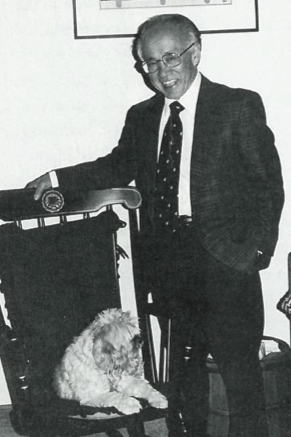Rev. Dr. Taitetsu Unno—one of the world’s preeminent scholars of Jodo Shinshu (Shin) Buddhism and a longtime minister in that tradition—passed away on Saturday, December 13. He was 85 years old.
Unno’s final moments were spent surrounded by friends and family, including his son Mark, who describes his father’s enduring equanimity and gratitude:
To the very end, he was fully aware and at peace, saying, ‘Thank you for everything, Namu Amida Butsu [Buddha],’ and when he could no longer speak, simply putting his palms together in gassho. His family and close friends who came to visit in his last days and hours experienced the deep joy of being with him and chanting together, immersed in the rhythms of boundless compassion.
As stated in Mark’s recently released obituary, a summary of which follows, Taitetsu Unno was the eldest son of a Shin Buddhist minister. Born in the city of Kita-Kyushu, in Western Japan, he immigrated to the United States in 1935, at the age of six. During World War II, he and his family were forced to live in internment camps in both Rohwer, Arkansas and Tule Lake, California. Once the war was over, his family moved to California, where Unno would later study English literature at UC Berkeley. He went on to receive his MA and PhD in Buddhist Studies at Tokyo University in 1968.
Unno then taught Buddhist studies for 40 years, initially at the University of Illinois at Urbana-Champaign, then for 37 years at Smith College. He made remarkable contributions to Buddhist scholarship over that period, including two landmark works on Shin Buddhism: River of Fire, River of Water: An Introduction to the Pure Land Tradition of Shin Buddhism (1998) and Shin Buddhism: Bits of Rubble Turned into Gold (2002).
Alongside these academic pursuits, Unno ordained as a minister in the Shin tradition of Pure Land Buddhism and later served at Senshin Buddhist Temple in Los Angeles, CA. Once he retired from teaching, Taitetsu and his wife, Alice, opened the Northampton Shin Buddhist Sangha in Northampton, Massachusetts, which they directed until 2007.
In an interview with Tricycle five years ago, Unno drew upon a popular Shin poem to make a statement about the illusory separation that arises during the act of remembrance. In the wake of Unno’s death, we can read the statement, perhaps, as an instruction from this eminent teacher on how best to grieve his own passing:
>A very famous teacher passed away and left this poem: ‘If you miss me, say “Namu Amida Butsu,” for I too live in the nembutsu [nondual light of the Buddha].’ In other words, if you have any questions about death or dying or where I am, say ‘Namu Amida Butsu,’ and that’s where I am. And you will also realize that’s where you are too.
—Ed.
Thank you for subscribing to Tricycle! As a nonprofit, we depend on readers like you to keep Buddhist teachings and practices widely available.
